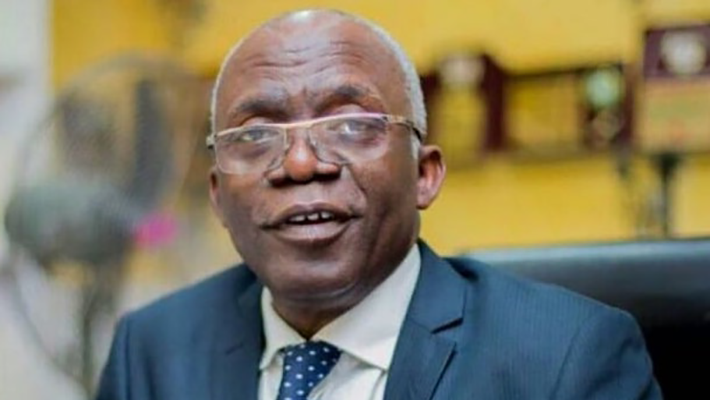Human rights lawyer, Femi Falana, SAN, has called on the Economic and Financial Crimes Commission (EFCC) and the Independent Corrupt Practices and Other Related Offences Commission (ICPC) to investigate the alleged criminal diversion of the $3.4 billion loan secured by Nigeria from the International Monetary Fund (IMF) during the COVID-19 pandemic.
Falana made this demand in a statement issued on behalf of the Alliance on Surviving COVID-19 and Beyond (ASCAB) on Sunday. He also urged the IMF Board to probe what he described as the management’s “deliberate failure” to ensure that the emergency funds were used for their intended purposes. Furthermore, he called on the IMF to suspend all scheduled charges—including net charges, basic interest, and administrative fees—amounting to SDR 125.99 million (about ₦275.28 billion), pending the conclusion of an independent investigation.
Last week, the IMF confirmed that Nigeria had fully repaid the $3.4 billion loan received under the Rapid Financing Instrument (RFI) in 2020. While the principal has been cleared, the country remains liable for various outstanding charges.
Falana recalled that the loan was granted at the height of the pandemic in response to Nigeria’s request for emergency assistance to stabilize its economy, support healthcare, and mitigate the impact of a global crisis. On April 28, 2020, the IMF Executive Board approved the loan to help the country cushion the effects of the health emergency, the oil price crash, and declining foreign reserves.
He cited statements from IMF Deputy Managing Director, Mitsuhiro Furusawa, who had stressed the importance of transparency and governance in managing the funds, including public audits and publication of all pandemic-related spending. However, Falana accused the IMF of failing to enforce these conditions and allowing mismanagement to occur under its watch.
Quoting a 2020 audit report by the Office of the Auditor-General of the Federation—released in January 2024—Falana pointed out several irregularities in how the funds were handled. The report noted that $2.4 billion was transferred to the Central Bank of Nigeria’s (CBN) account at the Federal Reserve Bank of New York on April 30, 2020, while the remaining $1 billion was sent to the CBN’s account at the Bank of China in Shanghai. By June 1, 2020, the $2.4 billion had been moved again, this time to the Bank for International Settlements (BIS) for short-term investments. The funds in China were similarly transferred to the Industrial and Commercial Bank of China (ICBC).
The audit flagged these movements as unauthorized, noting the absence of supporting documentation or approval from the Federal Government or the CBN’s Investment Committee. Furthermore, the funds were reclassified as part of the CBN’s external reserves instead of Federal Government holdings—enabling interest to be earned contrary to the intended emergency use of the loan.
Falana further referenced the report’s findings that, on August 7, 2020, the Federal Ministry of Finance requested the monetization of $700 million to support the 2020 federal budget. A week later, the CBN approved a debit of ₦265.65 billion, applying an exchange rate of ₦379.5 per dollar—higher than the official rate of ₦360.5 at the time. The funds were then disbursed across three accounts: ₦252 billion to the COVID-19 Public Sector Account, ₦13.3 billion to the Forex Equalisation Account, and ₦350 million to the Exchange Commission Account. A two percent commission was deducted, despite the funds being classified as federal property.
By the end of 2020, an unmonetized balance of $2.7 billion—approximately ₦1.02 trillion—remained unaccounted for. The Auditor-General’s report called on the CBN Governor to explain the movement and reclassification of the funds, and to submit bank statements confirming the unmonetized balance. It also demanded the recovery of the ₦13.3 billion and ₦350 million into the government treasury and the remittance of all interest earned from the investments. The report warned that failure to comply would attract sanctions in line with existing financial regulations.
According to Falana, the report also recommended that anyone found culpable should be sanctioned and handed over to the EFCC and ICPC for investigation and possible prosecution, as stipulated in paragraph 3112 of Nigeria’s Financial Regulations.
He expressed concern that, despite the Auditor-General submitting the 2020 Annual Report to both chambers of the National Assembly—as required by Section 85(5) of the 1999 Constitution (as amended)—the legislature has failed to take any action. He accused both Houses of deliberately ignoring the findings to cover up what he termed the criminal diversion of not only the $3.4 billion IMF loan but several trillions of naira also flagged in the report.
“In view of the foregoing, ASCAB calls on the EFCC and ICPC to urgently investigate the diversion of the $3.4 billion COVID-19 loan,” Falana said. “We also urge the IMF to hold its own management accountable and suspend the collection of all related charges until this matter is thoroughly investigated and resolved.”


